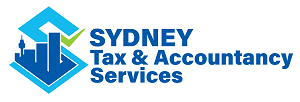
Year-Round Tax Planning Tips for Australian Businesses
Staying on top of your business tax obligations isn’t just about ticking boxes once a year. It’s about having a plan that works all year round. Planning ahead helps reduce surprises, keeps your finances steady, and puts you in a good spot when it's time to lodge your tax return. Whether you’re running a small startup or managing a growing team, taking small steps through the year can save you time and stress down the track.
Tax planning isn’t something you do last minute in June. It’s something that should be built into how you run your business day to day. From keeping better records to tracking expenses seasonal changes can bring, getting tax-smart early means you'll have more control and fewer headaches later. Spring is just beginning, so now’s a great time to review where you stand and get the basics sorted before the end of the calendar year creeps up.
Understanding Tax-Saving Opportunities
Each business model in Australia comes with different tax saving options. The types of deductions and offsets available to you depend on how you’re set up and what type of work you do. The main goal is to lower your taxable income without stepping outside the rules.
For example:
- Sole traders can claim things like home office costs, work tools, and part of their phone or internet bills, as long as it’s used for the business
- Partnerships and companies may be able to deduct motor vehicle expenses that relate to business travel, or write off depreciating assets like machinery or laptops
- Trusts often distribute profits to lower-taxed beneficiaries, but these arrangements need to be set up and managed correctly if you want to stay compliant
Sydney businesses in particular should keep a close eye on local overheads. High cost of rent, fuel, and services means it’s even more important to track what’s actually a business use and what isn’t. For instance, if you’ve rented a small space inside your home for administrative work, you might be eligible for a portion of those utility bills.
Some common business deductions to keep tabs on include:
1. Accounting and legal fees
2. Repairs and maintenance of equipment
3. Advertising and marketing costs
4. Insurance policies that relate to your business
5. Staff training courses
If you’re not sure what counts, keeping clear records throughout the year is the safest approach. It’ll help your tax professional spot savings and avoid scrambling for documents later.
Quarterly Tax Reviews
Waiting until June to check over your numbers can leave gaps in your tax plan. Holding a quarterly review lets you keep things clean and up to date. These check-ins shouldn’t take more than a few hours but can make a huge difference.
At the start of each quarter, sit down to look through:
- Overall income earned in the past three months
- Business expenses that were paid for, from rent to subscriptions
- Any changes to your business model or structure
- Payroll records and super contributions
- BAS obligations and whether they’ve been lodged properly
Doing this regularly helps you spot mismatches early and gives you time to fix them. For example, if your income spiked in one quarter, it may push you into a different tax threshold. A good plan could help lessen the impact across the financial year.
Also, if your business receives payments from multiple clients or deals with variable income, corrective moves like adjusting instalments or refining your expenses strategy might even out your tax bill throughout the year. It's better to pace your payments than face a big debt or refund come tax time.
These reviews are also a good time to check what kind of tech or processes you could use to make tracking easier. Even something as simple as a well-sorted filing system for receipts or digitised timesheets can make future planning smoother.
Leveraging Tax Offsets And Incentives
There are several tax offsets and incentives available to Australian businesses, but many go unused because owners aren’t aware they qualify. Some are industry-specific, others assist with hiring or investing in gear. Many apply to businesses operating in or around Sydney where the cost of doing business can be higher.
Offsets lower your overall tax bill. For example, the small business income tax offset applies to sole traders and partnerships that meet certain conditions. Incentives, on the other hand, are designed to encourage investment, such as schemes that reward you for buying new equipment or going green with operations.
To get the most value out of these:
- Keep records of all capital purchases and major upgrades
- Track payments made towards eligible training or staff development
- Check if you’ve claimed available fuel tax credits or R&D support if relevant
Timing your purchases is just as important. For example, if you plan to buy new tools or software, it might make sense to do that earlier in the financial year so you benefit from depreciation deductions sooner.
The key to unlocking these tax benefits is knowing which ones fit your business goals. That’s something a good tax planner can help with so you’re not leaving money on the table or claiming things you shouldn’t. It's about planning smarter, not harder.
Maximising Deductions With Expert Help
Trying to catch every available deduction across a full year can be frustrating if you’re juggling everything else in your business. That’s where the advice of a qualified tax professional makes a meaningful difference. Instead of guessing what you might be able to claim, they look at your business as a whole and figure out the best approach.
Many business owners miss out on deductions simply because they haven’t kept clear records or didn’t know what to track. For example, tools or items bought for mixed use, like a mobile phone that’s partly used for work, come with rules that change depending on how much of that usage is business-related. It's these small details that add up and impact what you're entitled to.
A professional can also help with:
- Sorting personal vs business expenses where the lines blur
- Choosing the right depreciation methods for assets
- Mapping out transactions for capital gains on investments
- Managing vehicle logbooks and travel deductions
- Making sure GST and BAS statements are completed correctly
Even if your business is still growing, having someone on your side early helps you build good habits. You’re more likely to claim exactly what you're allowed to, without overstepping. It also gives peace of mind knowing you’re sticking to tax law, staying ATO-compliant, and not attracting unwanted audits or penalties. Getting the advice early, rather than fixing mistakes later, is often the smarter way to go.
Keep Your Business Lean And Compliant
Running a lean business doesn’t just mean cutting back on costs. It means having simple, clear processes that make staying compliant easier. As changes roll out across the financial year, it helps to have a setup that’s easy to manage and adapt. That could mean reviewing your business structure to check if it still fits, or looking over small things like invoicing systems and how data is stored.
Having multiple subscriptions, overlapping tools, or unused services can hurt your financial position over time. Streamlining how you spend, especially on software, admin, or travel, can free up money and also simplify your records at tax time.
Some ways to stay structured without getting overwhelmed:
- Keep digital copies of all receipts and invoices
- Use accounting software that auto-feeds BAS and tax records
- Document any business decisions that involve big asset purchases
- Make sure payroll systems are lodging super correctly and on time
- Keep regular backups of important financial data
Sydney-based businesses should also remember that state-level obligations can differ slightly when compared to other parts of the country. Staying on top of local requirements, like the right timing for employee benefits reporting or changes to commercial leases, helps avoid small compliance issues snowballing into bigger ones.
Maintaining a lean setup gives you flexibility, lowers operating risk, and avoids messy admin piles. That all adds up to smoother tax planning and clearer visibility of where your business stands at any time.
Stay One Step Ahead with Smarter Tax Habits
Good tax planning is more than cutting down your bill in June. It’s about maintaining control over your numbers, knowing where your money is going, and building habits that last over time. By working small updates into your routine across the year, you can stay ahead of financial pressure and spot opportunities you might otherwise miss.
When your books are clean and your strategy is solid, it’s easier to make decisions with confidence. Whether it’s hiring new staff, buying equipment, or investing in growth, a business that understands its tax position avoids knee-jerk, last-minute scrambles mid-year. It also helps reduce the risk of overpaying or under-reporting, which could bring on late fees or audits.
From mapping expenses to checking your structure still suits your business size, keeping tax in mind throughout the year isn't about doing more admin. It's about doing less of the wrong kind at tax time. Investing in proper help, staying organised, and tracking the right details can make all the difference in how smoothly each year goes.
By making tax planning a part of everyday business, rather than a seasonal event, you’re setting yourself up for steadier growth and fewer surprises. It's a shift in mindset that makes financial wellbeing more than just an annual goal. It becomes the standard.
If you’re looking to build a strong financial foundation for your business, making room for effective tax-saving strategies in Australia can make all the difference. Sydney Tax & Accountancy Services is here to help you apply smart, compliant methods throughout the year so tax time doesn’t catch you off guard. Let us guide you in staying organised, keeping accurate records, and getting the most from what you’ve worked hard to earn.
